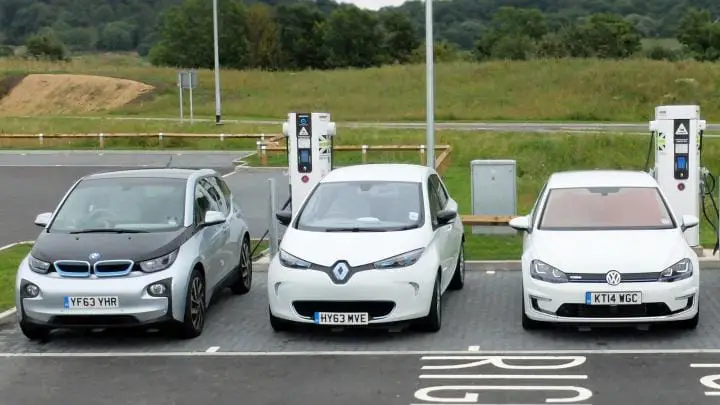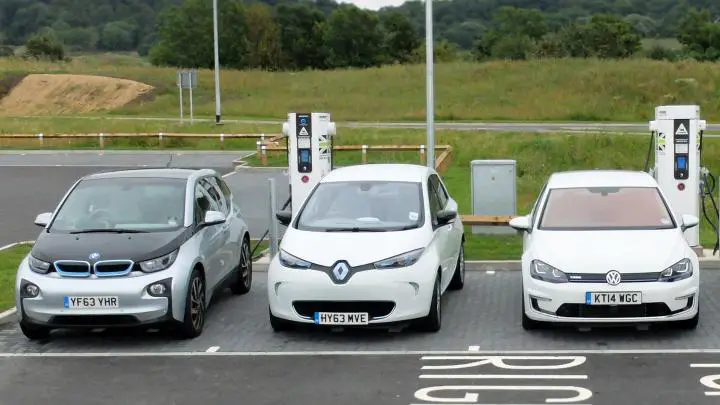Is the power grid fit for electric mobility?
According to the Ministry of Energy, Kenya generates over 2700MW, out of which over 80% is renewable, against the demand at 1860MW13. The excess 800MW could be utilized to power an electric transport fleet.


According to the Ministry of Energy, Kenya generates over 2700MW, out of which over 80% is renewable, against the demand at 1860MW13. The excess 800MW could be utilized to power an electric transport fleet. The demand for power keeps going lower to 1000MW during off-peak hours,(10 Pm-6 am) this is the time when a majority of the people are sleeping. When you own an EV the ideal time to charge your EV at home will be at peak hour because the consumption of electricity will be low. The electricity access rate in Kenya also stands at 73.4% as of the end of April 2018, but it is also possible through decentralized power inputs such as solar panels to power electric mobility in areas not connected to the national grid14.
In ten years, the demand for ICEs curve will go down and the petroleum industry will need to find alternative business ways because electric vehicles (EVs) replace petrol and diesel vehicles. By 2030 vehicle manufacturers will be winding up the manufacture of new petrol/diesel vehicles, mainly by order of governments which have decreed dates when registration of new petrol/diesel vehicles will cease. The policy and regulatory drivers for EVs are climate change commitments to reduce carbon emissions in the road transportation sector.
Global conversion to EVs has already made significant progress over the past five years, especially in China and Europe. A full-scale rush by vehicle manufacturers to develop the most cost-effective and convenient EVs (cars, trucks, motorbikes) is targeted towards future EV market share control. To shorten the transition time, governments are providing incentives, while car firms offer trade-ins of petroleum-powered vehicles for electric vehicles.
In Kenya, it can be expected that by 2030 EVs will have started to populate our roads and that the beginning of a gradual death of the retail petroleum business will have begun. This is why Kenya's economic and energy planners need to visualize a new road transportation energy scenario in their planning. Oil marketing companies cannot bury their heads in the sand, for indeed demand for petroleum fuels and lubrication will gradually diminish. They will need to re-engineer their medium and longer-term business models, as service stations will diminish their traditional significance as points of fuels and lubrication services.
EVs will be charging their batteries at home, car parks, or dedicated vehicle charging locations. It is the vehicle industry and their agents that will assume a bigger role in serving the motoring customers by availing EV charging capacity. Provision and service of EV batteries will become major supply chain activities.
Kenya Pipeline Company and all major stakeholders of petroleum products infrastructure will need to mull an eventuality of reduced petroleum throughputs and revenues. Even the Treasury should visualize a future with significantly reduced tax harvests from fuels, a headache that will be significant. For Kenya it will be a case of reduced forex requirements to fund fuel imports, as powering of vehicles reverts to locally produced electricity. Power generation and distribution companies will definitely leap the EVs benefits.
However, the biggest beneficiary from EVs will be the climate change with reduced carbon emissions, as long as the incremental electricity is generated from renewable sources, not from fossil sources . Energy storage batteries of as much capacity as 50/100MW will permit solar or indeed any intermittent electricity source to be generated, stored and transferred to the grid during peak demands. Indeed, electric battery storage technology and applications will be a major growth technical sector with many job opportunities and requiring new skills.
As road transportation goes electric around the world, the markets for crude oil will weaken, spelling the beginning of peak oil demands and subsequent decline of the oil industry as we have known it for years. It will indeed be a different scenario for Turkana oil reserves, as global crude oil markets shrink.
Some passage source: www.businessdailyafrica.com/bd/opinion-analysis/ideas-debate/why-we-need-to-plan-for-electric-vehicles-2297046




